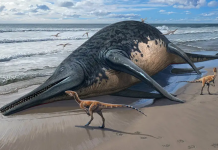Open Access Government provides an overview of Horizon 2020, the European Union’s research and innovation programme (2014-2020), its successor, Horizon Europe (2021-27), plus the European Research Area policy
With a budget of almost €80 billion, Horizon 2020, the EU’s research and innovation programme, ran from 2014 to 2020 and delivered significant benefits to the EU society and economy built on knowledge and innovation that went beyond what could be achieved at a regional or national level.
Helping to speed up the response to COVID-19, Zika and Ebola outbreaks and significantly impacting climate science are just a few examples of the real impact of Horizon 2020. It has been reported that for every euro spent on the programme, EU citizens will receive five euros in benefits by 2040, demonstrating the value of money for research and innovation in European society. These are some of the conclusions of the ex-post evaluation of Horizon 2020 published in late January 2024.
EU research and innovation: Horizon 2020
Horizon 2020 supported over 35,000 projects (1), but why was it an immense success? “It attracted one million applications from 177 countries. It funded almost 35,000 projects involving 40,000 organisations. It was massively oversubscribed,” we hear. (2) The programme also significantly impacted the fight against climate change and saw a 64.4% share of its budget allocated to sustainable development. Did you know that, alongside FP7 (its predecessor), Horizon 2020 is the second most prominent climate science provider globally?
The programme funded specific projects such as hydrogen-powered transport, photonics, mRNA vaccines, and micro- and nano-electronics. Nearly 4,000 patents and trademarks were created due to Horizon 2020 funding, adding 20% more jobs and 30% more turnover and assets for participating companies than those that did not participate despite high-quality applications. Over the long term, the programme is projected to increase the EU’s GDP by an average of €15.9 billion per year, reaching a total of €429 billion between
2014 and 2040.
The researchers funded under Horizon 2020 have contributed to more than 276,000 peer-reviewed publications, and 33 Nobel Prize winners have been supported. Horizon 2020 also played a crucial role in diversifying and improving the skills and knowledge of researchers. Did you know Horizon 2020 enabled the mobility of nearly 50,000 researchers to work across countries and sectors?
Iliana Ivanova, Commissioner for Innovation, Research, Culture, Education and Youth, said that long-term research and innovation investments offer a high return on investment for society, a point which she developed. “It is the cornerstone of a greener and smarter future as well as a key element of EU competitiveness and strategic sovereignty. Horizon 2020 enabled pivotal science breakthroughs with tangible impact on our lives, from overcoming the COVID-19 pandemic to fighting climate change and delivered ground-breaking innovations that benefitted our companies and society at large,” Commissioner Ivanova explained.
Commissioner Ivanova noted that the findings of the final evaluation will help the Commission to enhance Horizon Europe and contribute to the discussion on future research and innovation policy and programmes in the EU. The evaluation also found that the following areas need to be improved: Wider participation; More simplification and reduction of administrative burden; Underlining the sharing, exploitation and implementation of results; Promoting women’s involvement and building synergies with other projects at EU Member State and regional levels.
The results and key findings of this final Horizon 2020 review will shape Horizon Europe’s future and the policy landscape for the future of research and innovation. “This ensures that lessons learnt are effectively integrated into current and future programmes, enhancing their efficiency, relevance and impact for Europeans,” we hear. (1)
Research and innovation: Horizon Europe
Of course, we know that after Horizon 2020, Horizon Europe is the EU’s critical funding programme for research and innovation worth €95.5 billion between 2021 and 27. (3) The programme tackles the significant challenges facing our societies, such as climate change and artificial intelligence, the latter of which is one of the most crucial future game changers. (4) Horizon Europe also shifts the attainment of gender equality in R&I up a gear through schemes like the Marie Skłodowska-Curie Actions and the Girls Go Circular programme, the latter of which promotes curiosity and fosters a supportive environment for young girls to discover STEM. (5)
The United Kingdom became an associate Horizon Europe member in January 2024. In other words, its researchers will have access to this EU research and innovation programme under the same conditions as researchers from other related countries and be eligible for Horizon Europe funding.
“I am happy to welcome the UK back to the Horizon family. This is a real milestone, a clear win-win for both sides and for global scientific progress. Together, we can push further and faster. I have made association of non-EU countries to Horizon Europe my personal priority, and we are delivering,” Commissioner Ivanova observed. (6)
Looking ahead: EU research and innovation
Following on from the above areas, Marc Lemaître, Director-General for Research and Innovation of the European Commission (7), quite rightly said that in the face of an ever-evolving global landscape and environmental, defence, digital and health challenges, Europe implements its research and innovation policy intending to advance “scientific progress and technological improvements” for the benefit of humanity and our planet.
“In all of these efforts, the European Research Area (ERA) plays a key role, working to create a dynamic and collaborative research ecosystem across Europe. Research, researchers and knowledge are meant to move freely in this area,” Director-General Lemaître told Open Access Government.
The ERA marks the beginning of a new era for Europe’s research landscape, where innovation goes global, and researchers’ flourish. It’s a celebration of progress and research, plus a call to work together to shape the future, Director-General Lemaître concluded. (8)
We wish the current and next Commissioner and their teams well as they implement the Horizon Europe programme 2021-27 and build a proper European Research Area in cooperation with EU Member States (9) after the undoubted success of Horizon 2020.
References
- https://ec.europa.eu/commission/presscorner/detail/en/IP_24_461\
- https://ec.europa.eu/commission/presscorner/detail/en/speech_24_927
- https://research-and-innovation.ec.europa.eu/funding/funding-opportunities/funding-programmes-and-open-calls/horizon-europe_en
- https://ec.europa.eu/commission/presscorner/detail/en/statement_24_7655.
- https://ec.europa.eu/commission/presscorner/detail/en/statement_24_732
- https://ec.europa.eu/commission/presscorner/detail/en/ip_23_6327
- https://commission.europa.eu/persons/marc-lemaitre_en
- https://www.openaccessgovernment.org/empower-research-careers-strengthen-the-european-research-area/168965/
- https://commissioners.ec.europa.eu/iliana-ivanova_en#team














